Dagstuhl-Seminar 18082
Formal Methods for the Synthesis of Biomolecular Circuits
( 18. Feb – 23. Feb, 2018 )
Permalink
Organisatoren
- Yaakov Benenson (ETH Zürich - Basel, CH)
- Neil Dalchau (Microsoft Research UK - Cambridge, GB)
- Heinz Koeppl (TU Darmstadt, DE)
- Oded Maler (VERIMAG - Grenoble, FR)
Kontakt
- Andreas Dolzmann (für wissenschaftliche Fragen)
- Simone Schilke (für administrative Fragen)
Programm
Synthetic biology aims for the rational bottom-up engineering of new biological functionalities. Recent years have witnessed an increase in the degree of "rationality" in the design of synthetic biomolecular circuits. With it, fewer design-build-test cycles are now required to achieve a desired circuit performance. Most of these success stories reported the realization of logic circuits, typically operating via regulation of gene expression and/or direct manipulation of DNA sequences with recombinases, executing combinatorial and sometimes sequential logic. This was achieved with the help of two types of resources: libraries of previously well-characterized genetic components and mechanistic or machine learning-based predictive computational modeling. Hence, although circuits in synthetic biology are still by far less understood and characterized than electronic circuits, the opportunity for the formal synthesis of circuit designs with respect to a behavioral specification starts to emerge in synthetic biology.
This Dagstuhl Seminar will bring together experts in formal methods for the verification and synthesis of hardware and software with wet-lab and dry-lab synthetic biologists to (1) achieve a common understanding of the current state of design methodology in synthetic biology; (2) to identify the limitations of current approaches; and (3) to investigate dedicated solutions to the synthesis problem in synthetic biology. Some of these methods will be based on leveraging experience and methods from cyber-physical systems design, electronic design automation and from program synthesis and verification. In addition, ideas for entirely new methodologies specifically tailored for synthetic biology are likely to emerge. For example, features that are less pronounced in electronic circuits such as heterogeneity and variability between cells and between the circuits embedded in different cells, will be addressed.
 Yaakov Benenson, Neil Dalchau, Heinz Koeppl, and Oded Maler
Yaakov Benenson, Neil Dalchau, Heinz Koeppl, and Oded Maler
The seminar brought together experts in formal methods for the verification and synthesis of hardware and software with wet-lab and dry-lab synthetic biologists to (1) achieve a common understanding of the current state of design methodology in synthetic biology; (2) to identify the limitations of current approaches and (3) to investigate dedicated solutions to the synthesis problem in synthetic biology. Some of these methods are based on leveraging experience and methods from electronic design automation (EDA) and from program synthesis and verification. In addition, ideas for entirely new methodologies specifically tailored for synthetic biology are likely to emerge. For example, features that are not apparent in electronic circuits such as heterogeneity and variability between the cells and between the circuits embedded in different cells, were addressed.
Apart from talk by participants, the seminar also featured break out session that were well received by the participants. In particular, we had sessions on "Modeling context-dependency of synthetic circuits" on "Metrology in Synthetic Biology" and on "Formal Specification for Biological Circuit Synthesis".
 Heinz Koeppl
Heinz Koeppl
- Aaron Adler (BBN Technologies - Cambridge, US) [dblp]
- Ben Barak (Tel Aviv, IL)
- Chris Barnes (University College London, GB) [dblp]
- Jacob Beal (BBN Technologies - Cambridge, US) [dblp]
- Yaakov Benenson (ETH Zürich - Basel, CH) [dblp]
- Milan Ceska (Brno University of Technology, CZ) [dblp]
- Neil Dalchau (Microsoft Research UK - Cambridge, GB) [dblp]
- Sara-Jane Dunn (Microsoft Research UK - Cambridge, GB) [dblp]
- François Fages (INRIA Saclay - Île-de-France, FR) [dblp]
- Eric Fanchon (TINC-IMAG Lab - La Tronche, FR) [dblp]
- Thomas Gorochowski (University of Bristol, GB) [dblp]
- Maleen Hanst (TU Darmstadt, DE) [dblp]
- Nathan Hillson (jibei - Emeryville, US)
- Johannes Kabisch (TU Darmstadt, DE)
- Heinz Koeppl (TU Darmstadt, DE) [dblp]
- Jan Madsen (Technical University of Denmark - Lyngby, DK) [dblp]
- Oded Maler (VERIMAG - Grenoble, FR) [dblp]
- Gareth Molyneux (University of Oxford, GB)
- Radu Muschevici (TU Darmstadt, DE) [dblp]
- Chris J. Myers (University of Utah, US) [dblp]
- Irene Otero-Muras (CSIC - Vigo, ES) [dblp]
- James Scott-Brown (University of Oxford, GB) [dblp]
- Boyan Yordanov (Microsoft Research UK - Cambridge, GB) [dblp]
- Paolo Zuliani (University of Newcastle, GB) [dblp]
Klassifikation
- bioinformatics
- modelling / simulation
- semantics / formal methods
Schlagworte
- Synthetic biology
- electronic design automation
- program synthesis and verification

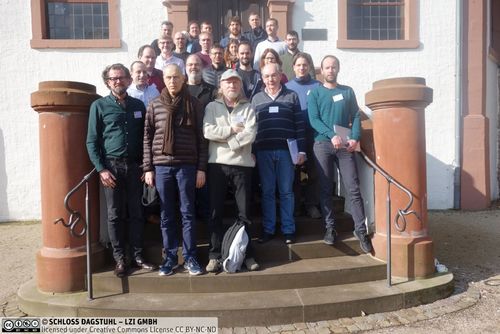
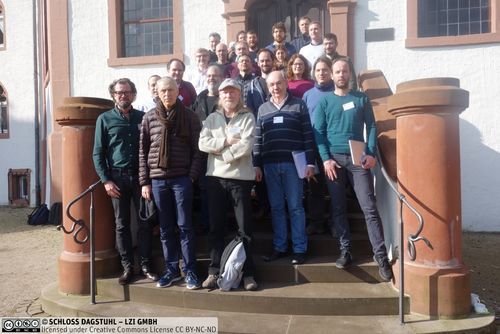
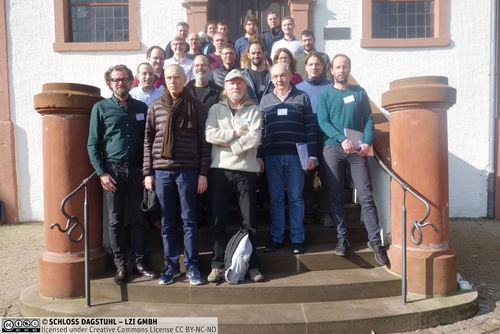
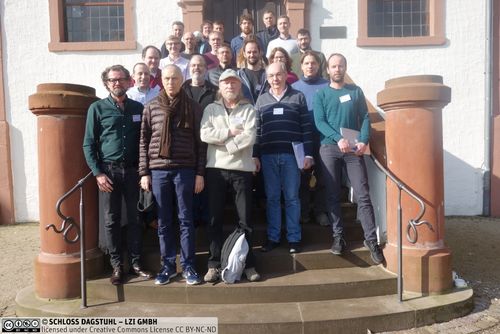
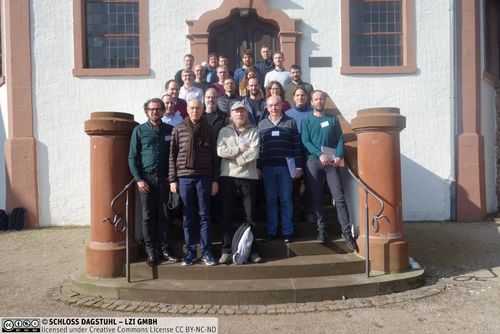
 Creative Commons BY 3.0 DE
Creative Commons BY 3.0 DE
